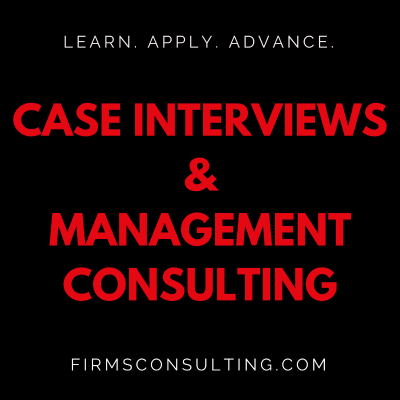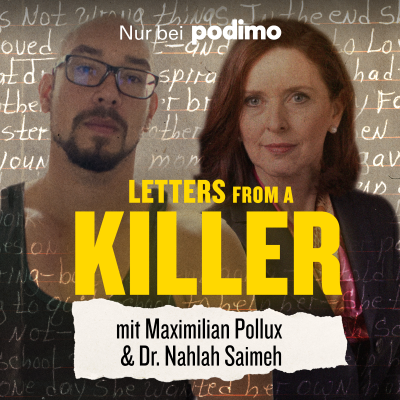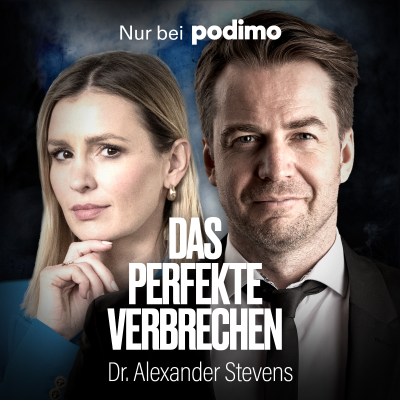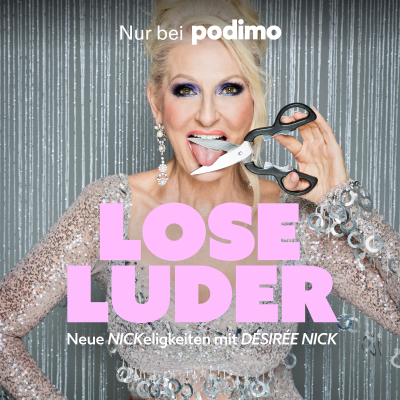
Case Interview Preparation & Management Consulting | Strategy | Critical Thinking
Englisch
Kostenlos bei Podimo
Kostenlos hören bei Podimo
Starte jetzt und verbinde dich mit deinen Lieblingspodcaster*innen
- Vertraut von über 1 Mio. deutschen Hörer*innen
- Über 1.000 lokale Podcasts und Shows – nur bei Podimo
- Keine Zahlung nötig
Mehr Case Interview Preparation & Management Consulting | Strategy | Critical Thinking
Firmsconsulting maintains a 80% success rate at placing clients within McKinsey, BCG and Bain. This is the highest in the industry and the rate is higher if we include other firms. We achieve this rate because we only use former partners from McKinsey, BCG et al to develop our clients. This makes us unique. We never use analysts, associates, engagement managers or associate principals. We also carefully select and develop clients on their communication, image, technical and case interview skills. This podcast channel describes our lessons from training our clients. www.firmsconsulting.com www.strategytraining.com
Alle Folgen
826 Folgen837: How to Network with a Senior Partner (Case Interview & Management Consulting classics)
Networking with a partner is counter-intuitive. It is much easier to network with a McKinsey / BCG partner for at least four reasons. First, partners always return emails. Second, partners are generally willing to take a call just to explore your profile. Third, partners are less hung up on things like degrees etc. since they look deeper at a profile. Fourth, partners are accessible with easy to find details. That said, the trick to networking with partners is to treat them as a peer. As soon as you place them on a pedestal, you will kill your networking chances. Here are some free gifts for you: Overall Approach Used in Well-Managed Strategy Studies free download: www.firmsconsulting.com/OverallApproach [https://www.firmsconsulting.com/OverallApproach] McKinsey & BCG winning resume free download: www.firmsconsulting.com/resumepdf [https://www.firmsconsulting.com/resumepdf] Enjoying this episode? Get access to sample advanced training episodes here: www.firmsconsulting.com/promo [https://www.firmsconsulting.com/promo]
836: How do you gain more experience? (Case Interview & Management Consulting classics)
For this episode, let's revisit a Case Interview & Management Consulting classic where we discuss how to gain more experience. Many candidates are declined with the suggestion to gain more work experience. Unfortunately, candidates take this feedback at face value. This podcast explains what this feedback means and suggests a vital shortcut to fix this problem. Hint, it does not require work experience at all. Here are some free gifts for you: Overall Approach Used in Well-Managed Strategy Studies free download: www.firmsconsulting.com/OverallApproach [https://www.firmsconsulting.com/OverallApproach] McKinsey & BCG winning resume free download: www.firmsconsulting.com/resumepdf [https://www.firmsconsulting.com/resumepdf] Enjoying this episode? Get access to sample advanced training episodes here: www.firmsconsulting.com/promo [https://www.firmsconsulting.com/promo]
835: Anecdotes on Poor Networking Calls (Case Interview & Management Consulting classics)
In this podcast we have listed some of the most common and most significant networking mistakes made by candidates. Since many of these have been made by clients, we have had an opportunity to discuss the mistakes, their motivations, the fall out and their response. Therefore, we can provide a comprehensive discussion on the implications of these mistakes. In general, no matter how badly a McKinsey partner networking call may go, you have little to fear. Here are some free gifts for you: Overall Approach Used in Well-Managed Strategy Studies free download: www.firmsconsulting.com/OverallApproach [http://www.firmsconsulting.com/OverallApproach] McKinsey & BCG winning resume free download: www.firmsconsulting.com/resumepdf [http://www.firmsconsulting.com/resumepdf] Enjoying this episode? Get access to sample advanced training episodes here: www.firmsconsulting.com/promo [http://www.firmsconsulting.com/promo]
834: Harsh Partners (Case Interview & Management Consulting classics)
Being a young business analyst or associate on the receiving end of blunt and harsh feedback from a partner is a very jarring experience. However, it is also somewhat of a compliment. I never understand this very, very important point until my mentor, a senior partner, pointed this out to me when the managing partner gave me a very time about an initiative I was running. In hindsight, this was one of the most profound lessons I had in my consulting career, and the managing partner became a huge ally when I was up for partnership. Here are some free gifts for you: Overall Approach Used in Well-Managed Strategy Studies free download: www.firmsconsulting.com/OverallApproach [http://www.firmsconsulting.com/OverallApproach] McKinsey & BCG winning resume free download: www.firmsconsulting.com/resumepdf [http://www.firmsconsulting.com/resumepdf] Enjoying this episode? Get access to sample advanced training episodes here: www.firmsconsulting.com/promo [http://www.firmsconsulting.com/promo]
833: Using Storytelling in Cases (Case Interview & Management Consulting classics)
Storytelling is a very powerful technique to ensure someone remembers you after an interview. In fact, even when we screen people at Firmsconsulting today, we use this technique I applied as a partner. The rule is simple: if I can remember your key messages from the interview the next day, I would make you an offer. That, of course, assumes you had passed all the other hurdles well enough. One way to be remembered is to be your answers around compelling stories using the New York Times rule of facts, facts and facts with a beginning and end. Here are some free gifts for you: Overall Approach Used in Well-Managed Strategy Studies free download: www.firmsconsulting.com/OverallApproach [http://www.firmsconsulting.com/OverallApproach] McKinsey & BCG winning resume free download: www.firmsconsulting.com/resumepdf [http://www.firmsconsulting.com/resumepdf] Enjoying this episode? Get access to sample advanced training episodes here: www.firmsconsulting.com/promo [http://www.firmsconsulting.com/promo]















































